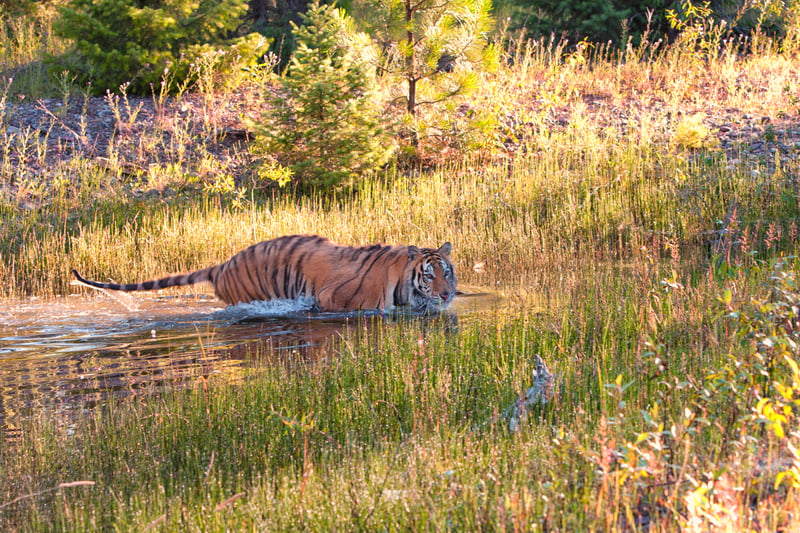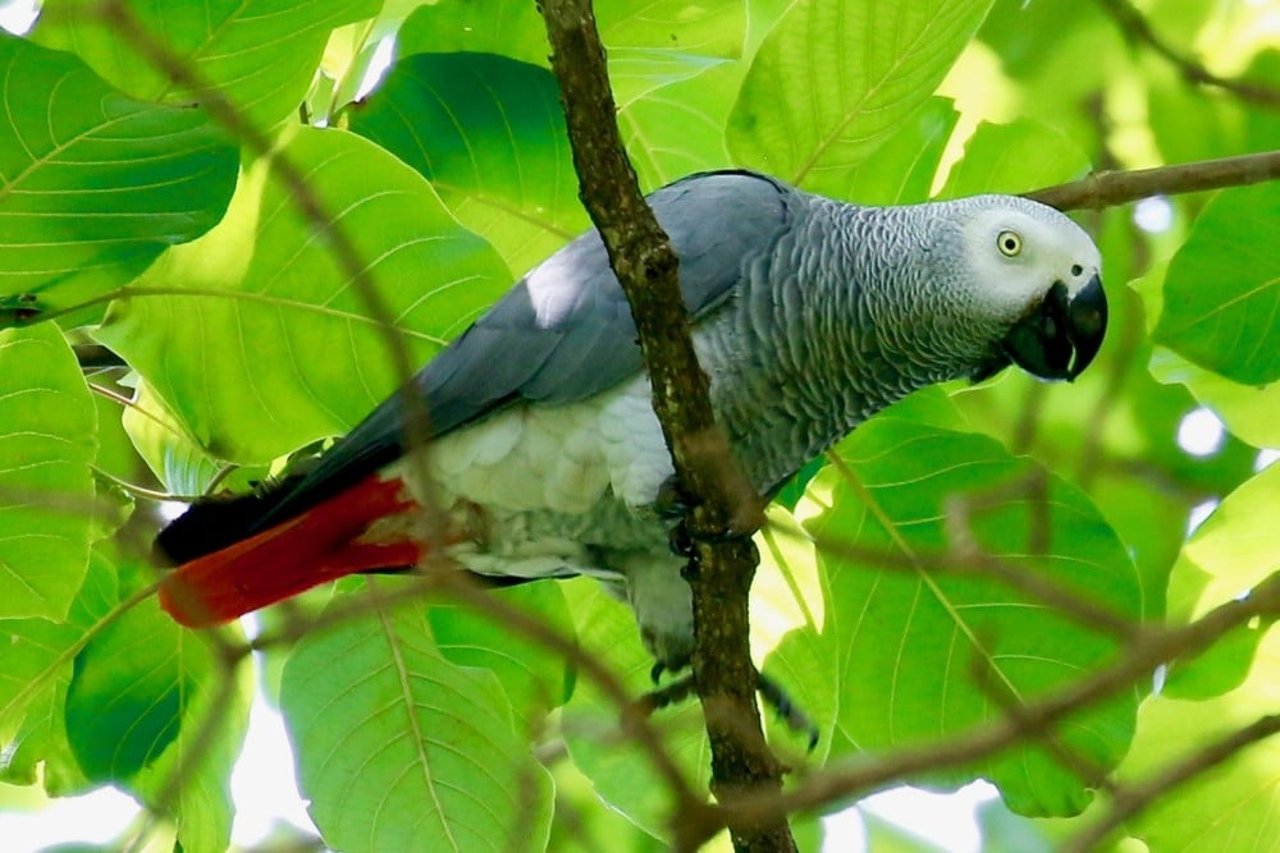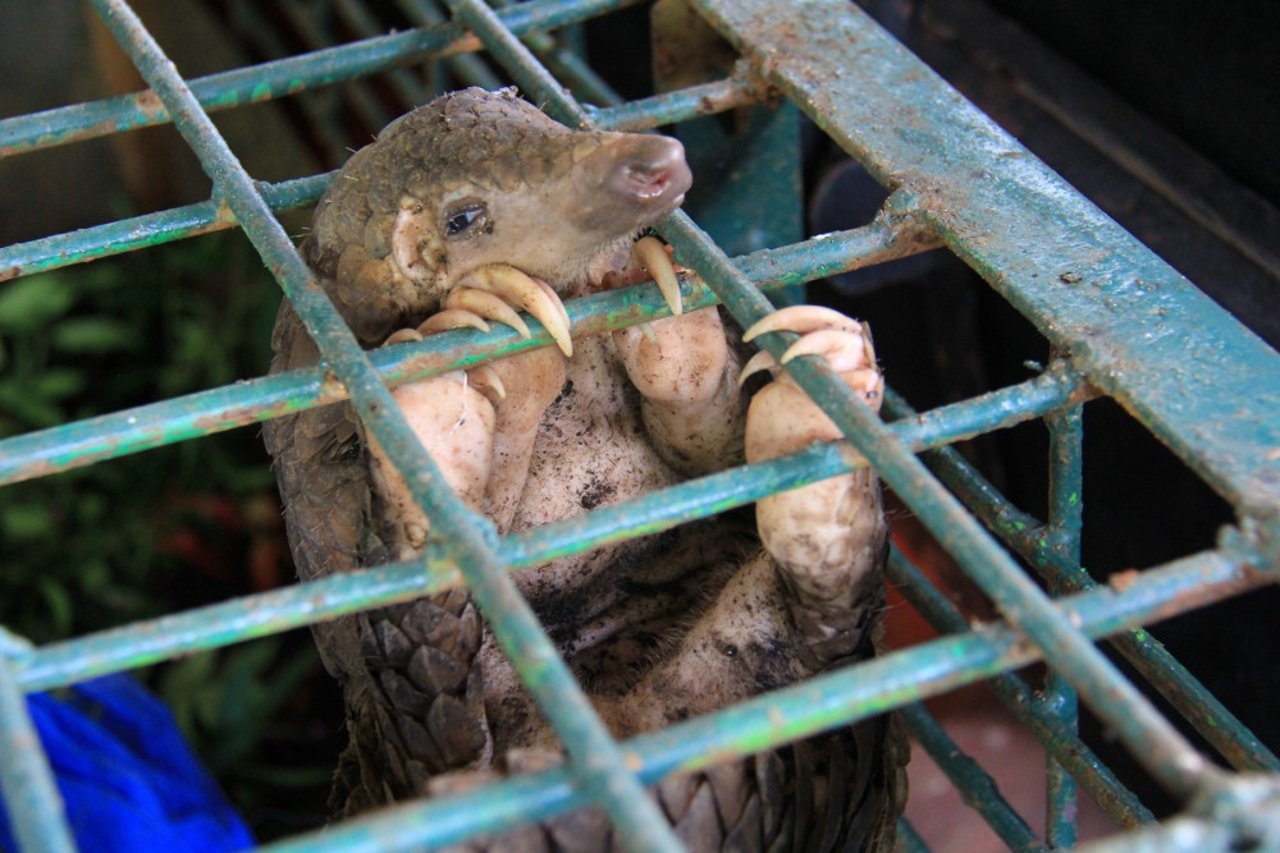
Building a better world for wildlife
News
With your support we’ve launched a bold new campaign to protect animals, our environment and people’s health too. Together we can achieve a global ban on the cruel, dangerous and unnecessary trade in wild animals. Forever.
Top image: iStock. by Getty Images
The coronavirus’ likely link to Chinese ‘wet markets’ – spaces where live and dead animals are sold – is shining a harsh spotlight on the cruel treatment of animals globally for commercial gain. It’s also showing the world-shattering effects of trading wild animals on human health.
This gives us an unprecedented opportunity and an urgent, extraordinary task – to end the wildlife trade.
“Out of all the despair the coronavirus has presented us with, there is a ray of hope and that is making the world better for wildlife. We see it as our mission to make sure that happens,”
says Kate Nustedt, our global director of animals in the wild.
“The demand for wild animals for use in medicine, for food, to be kept as pets or for that once in a life-time holiday experience causes them mass suffering. It’s now clear that this demand also comes at the cost of human health, the environment and the economy.”
Making the links
Without a global and domestic action to protect wildlife and end the trade, future wild animal-linked pandemics will become increasingly likely and worse.
“We have been warned of the threats and dangers of treating wild animals cruelly and the links with zoonotic diseases – those that transfer from animals to humans. Wild animals are thought to be the source of at least 70% of all emerging zoonotic infectious diseases.
“We have seen the links with Ebola and SARS for example. But I couldn’t have imagined that what we are seeing would be on this massive, global scale, rather than restricted to a specific region or connecting countries,” Kate explains.
This problem must be seen as global and linked to the current acceptability of commodifying wild animals. Consequently, our campaign tackles all ways and areas where wild animals are traded – whether for use as entertainers, pets, medicine or products.
70% of emerging infectious diseases originate from wild animals – snatching animals from their homes puts us all at risk.
”Our message is clear: Wild animals belong in the wild. When they are left in the wild and people keep a safe distance and protect wild habitats, the planet becomes a much safer, healthier place,” says Kate.
“The threats of zoonotic disease transmission are inherent in every step of the wildlife trade, whether it’s legal and illegal makes no difference. This includes capture, farming, transport, physical trade or online and any keeping or use of wild animals by people.”
Targeting G20
Examples of farmed wild animals include the 24,000 bears farmed in Asia – mostly in China - for their bile for use in traditional Asian medicine. In South Africa lions are bred and farmed for people’s entertainment – including for ‘selfies’ and trophy hunting – and for export into the traditional Asian medicine trade.
Over the next few months, we’ll press global leaders of the G20, meeting in Saudi Arabia in November, to commit to a global ban on the wildlife trade. This highly influential body is an international forum for the governments and central bank governors from 19 countries and the European Union.
Unnecessary exploitation: pangolins, a small scaley animal hunted for use traditional medicine, are the world’s most trafficked mammals. Image credit: Arief Budi Kusuma / shutterstock.com
The G20 is important because it carries enormous economic and political weight; its member governments typically move more quickly than most UN institutions. There are fewer individual countries and fewer formal processes.
“During the 2008 financial crisis the G20 showed its potential as a global leadership body, agreeing global solutions to stabilise the world’s economies. We expect it to have a similar role in the coming months – formulating a collective response to the coronavirus pandemic and developing global answers to prevent similar ones,” explains Kate.
70% of emerging infectious diseases originate from wild animals – snatching animals from their homes puts us all at risk

